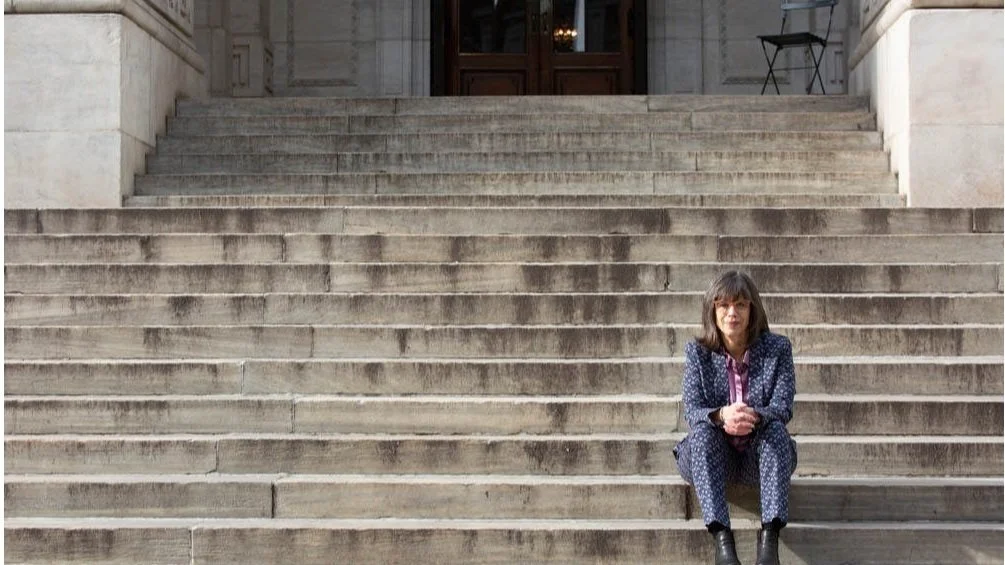Maybe it's time already.
When good enough is good enough
A couple of months ago, I was looking through a file of old writing when I discovered a forgotten short story I’d written years ago and never sent out. I read the story, standing at the open file drawer, and when I was done, I thought: “This is good.” My second thought was: “I should send it to my writing group and see if they think it’s good. They could do another round of critiques on it and make it really, really good.”
Then, in a bold moment, I thought: “No. This story is good enough. If I tinker longer, I risk shoving it back in the drawer again for another hundred years.” I sent it out, defying the advice I often give about always enlisting help with your art-making and marketing.
That story, Say His Name, won an honorable mention in Glimmer Train’s Short Short Story competition and will be published in Issue 12, the next issue, of the literary magazine PoemMemoirStory.
Sometimes the best advice is best ignored. Sometimes your own opinion is all that matters. Sometimes taking action to send your work into the world is more important than years of tinkering something to a possible perfection which can also result in the death or slow smothering of a work.
What action can you take today in the direction of your artistic ambition without consulting anyone but your own knowing self?
Don't inoculate your ambition
“I inoculated myself against my literary ambition,” said author JJ Lee during a keynote at a writer’s conference I attended recently where he told the story of how he spent years avoiding the memoir he was both afraid of and destined to write. When he finally lost his job and had nothing else to do but write, he realized his ambition and wrote the acclaimed memoir The Measure of a Man.
His statement stuck with me for days. It made me wonder – how do artists and writers inoculate themselves against their own ambition when their ambitious projects scare them?
The word “inoculate” is so apt. It’s a word associated with protection from a disease. Perhaps this is one vaccine that hurts more than it helps. What would allow your ambition to wake up and write the book, paint the series, stage the performance that you are destined to create? Maybe what others consider a disease is for you the call to fulfill your ambition.
I think many artists inoculate themselves to some extent – after all, even successful artists tell me how scary a new project can be. Who wouldn’t be tempted to put ambition to sleep? What action can you take today to wake up your ambition and move your next project forward?
Devote your first hour to your art
Use your superpowers for good
Waiting to cross the street yesterday with my dachshund, I tried to make eye contact with the driver to make sure he saw me. But he wouldn’t look at me. So, I didn’t move. When I leaned in to find his eyes, he stared straight ahead, stone face. I sensed a big anger in him so I didn’t move but continued to watch him. Then, still refusing to look at me, he raised his hand in an impatient gesture that said to me “Come on, already, cross the street.” So I did, feeling the punch of his anger even though we hadn’t spoken and he never looked at me. Then as soon as my dog and I had cleared his path, he gunned his SUV and roared past. I was surprised that it took me half an hour to recover from his hostility. Then I thought: we, each of us, have so much power that we can use for good or bad. I thought of times when a stranger’s kind words had lifted my spirits for a day. I thought of the superpower we use every minute, every day, sometimes against ourselves and each other, sometimes for ourselves (and our art) and for each other. An old friend who I hadn’t seen in a 30 years wrote me recently after we had gotten together to say: “you used your superpowers for good.” I wasn’t even sure what he meant. But I appreciated this idea that we all have superpowers.
How can you use your superpower for good today? How can you harness it and make it work for your art rather than against it? How can you interact with just one other person today where your use your superpowers for good?
NEA's Writers' Corner
The hardest part of most grant applications is often the writer's or artist's "statement" about why you need the money or where you are in your career. My students often ask me how they can read other statements from successful applications. I just discovered this resource: The Writers' Corner on the National Endowment for the Arts website. This list shows past winners and their sample work including statements. Notice how straightforward those statements are. I will definitely peruse these before writing my next one!
Fundraising helps your artistic process
"Consider the pursuit of support and raising money as part of your artistic process. It is not a burden. It is a way of meeting people, building community and articulating ideas, concepts, and intentions… If you have an idea for a project by the time you’ve described it to forty people it will be a better idea." -- Anne Bogart, Theater Director, from her book and then, you act: making art in an unpredictable world.
Notice the presentations all around you
Standing in line at Trader Joe's the other day, I witnessed a young man return a bag of cashews. He did what all good presenters do: he established rapport, he told a relevant, concise story with humor, and then he used the bag as a prop to demonstrate the hole in it. Most of us make presentations every day in informal settings and we do fairly well. Then, for some reason, when we stand in front of an audience or speak at a meeting, we forget our good instincts.
The next time you present in an informal or formal setting, what can you emulate from cashew man? Some ideas:
-Build rapport with your audience before your talk begins. -Open with a concise, relevant, even funny story. -Use a prop or demo - it's guaranteed to be the most memorable moment of your talk. -End with a clear call to action. What do you want your audience to do or remember after they've walked out the door?
Until then, send me a story of a presentation you made or witnessed and how you used these skills. And keep noticing the presentations all around you!
Play the Numbers Game
I set a challenge for myself this year to send 50 submissions – about one a week – into the world in 2012. By submissions I mean grant applications or stories to literary magazines or contests or any kind of entry into a formal, public competition. Last Thursday, after sending out 20 submissions so far this year, I just received my 2nd acceptance. One of my stories, “Say His Name,” will be published in the next issue of poemmemoirstory.
What I’ve known all along but am now putting into practice is that the more I send “requests” into the world, the more I find acceptance. It’s such a simple formula, I’m astounded at my past resistance.
How could you play this numbers game in support of getting published, recognized, awarded or funded? To start, figure out how many submissions you’ve made in the past year or in the past six months. Set your sights on doubling it. If you sent out 10 applications last year, can you make it 20 this year?
This is the way you create your own luck. Not by waiting for it to knock on your door, but by inviting it, again and again.
Eva Lake interviews Gigi Rosenberg on KBOO
Eva Lake interviewed me for KBOO's Art Focus about how to ace your next grant application. If you missed the live broadcast on May 1, 2012, here's a recording. She's a lively interviewer and you'll get several application-saving tips in less than 30 minutes. http://soundcloud.com/gigirosenberg/gigi-rosenberg-on-grant
Be the boss of your art
Although Jade Simmons’ book, Emerge Already!, is geared for the performing musician, Simmons (a classical musician) writes with grace and humor about how to be the boss of your own art. Her advice applies to artists of all stripes: "Don’t wait around to be discovered. Discover yourself instead." This book is a must-read for performers and empowering for every artist entrepreneur. Reading it is like having a conversation with your smartest, funniest, most honest friend. Simmons, Jade. Emerge Already! The Ultimate Guide to Career Building for Emerging Artists. Houston, TX: Jade Media, 2011.
Angry filmmaker
Even if you’re not a filmmaker, Kelley Baker’s book The Angry Filmmaker Survival Guide Part I: Making the Extreme No-budget Film is a motivating and informative read. Baker’s anger is the healthy and productive kind and his stories remind you how much of your career success is in your own hands. Baker’s extreme no-budget advice is wise and he's such an engaging storyteller that the book is hard to put down. Baker, Kelley. The Angry Filmmaker Survival Guide Part I: Making the Extreme No-Budget Film. Portland, OR: Angry Filmmaker, 2009.
Why so sensitive?
According to psychologist and author Elaine Aron, 15-20 percent of the population is “highly sensitive” and many of us are artists. She promises we don’t have a disorder just a need to nurture ourselves because of our tendency to be deep, overwhelmed because we perceive so much. Her book, The Highly Sensitive Person, is a life-changing read and has taught me that my sensitivity is also my gift and that I can succeed, not despite my sensitivity, but because of it. Aron, Elaine N. The Highly Sensitive Person: How to Thrive When the World Overwhelms You. New York: Three Rivers Press, 1998.
Find Int'l residencies
A residency can offer time, space and sometimes even a stipend to do nothing more than make work. You could be the only artist on a mountaintop or among 50 artists from varied backgrounds in a bustling urban mecca, or something in between. Check out two new resources for finding a residency that will be added to the next printing of my book: Trans Artists: A free listing of international artist-in-residence programs.
Beltway Poetry Quarterly Resource Bank: Free listing of national and international residencies (at national parks, colleges or museums), artist colonies, and retreat programs.
My blog is live!
Welcome to my new blog! I’ll post enticing grant and residency opportunities, features with artists who are succeeding at the business of art, reviews of books I can’t live without and more. As a teacher and artist coach, I want to ensure that every second you spend writing a grant application pushes your art further into the world. This blog is where I’ll remind you of all the things you’re already doing right and offer tips and advice for how to streamline, prioritize and stay focused on not only making art but building your audience. Join me by subscribing to this blog via email. You can also join the conversation by "liking" The Artist's Guide to Grant Writing Facebook page and/or subscribing to my mailing list to receive occasional updates on tips and opportunities for your brilliant career.


